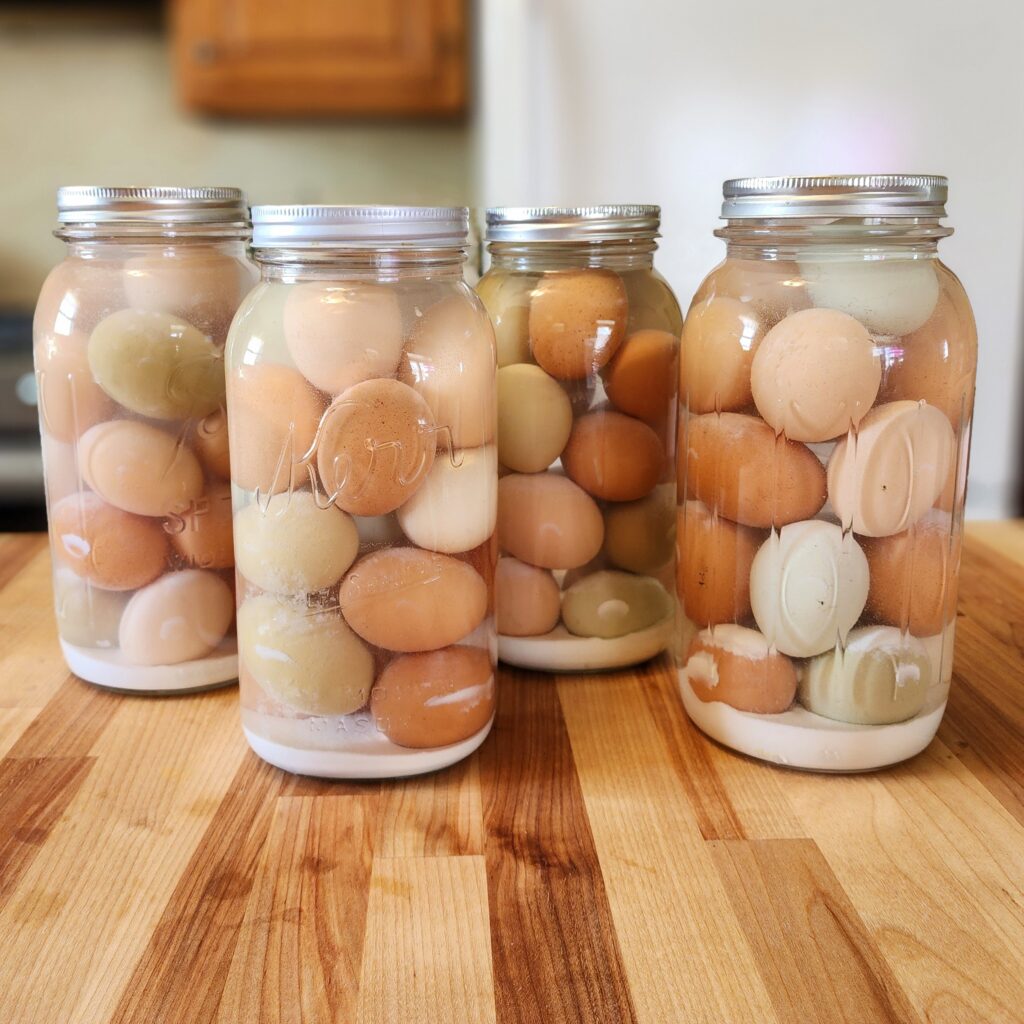Disclaimer: This post contains affiliate links. At no cost to you, I will earn a commission if you click through and make a purchase. All opinions are my own.
It’s the time of year when we have a surplus of eggs! Laying eggs is naturally seasonal. While it is possible to increase laying in the winter through heating of coops and/or adding supplemental lighting, we allow our chickens to follow their natural cycles and choose not to induce winter laying. This also tends to work out best with our egg customers who are more likely to purchase in the summer months.
With our current surplus we are eating them, selling them, and preserving them. Unfortunately, many times when eggs are out of season, I end up buying store bought eggs. While freezing eggs is possible (I scramble gently and freeze in a deli container) sometimes I need eggs without the rubbery texture that can happen with freezing. Introducing water glassing eggs, a preservation method that includes the entire egg, shell and all.
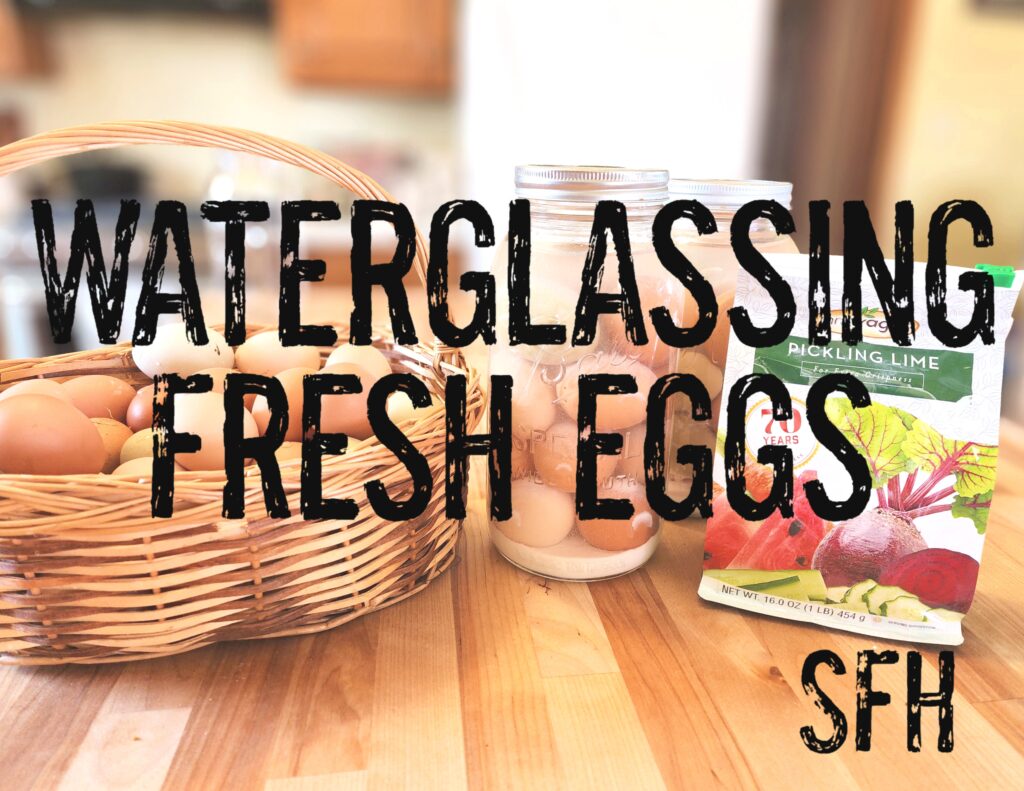
This method relies on the natural protective layer that coats the egg, called a bloom. When an egg is laid, a protective and sometimes colored bloom coats the egg. When water glassing it is important that this bloom is intact and hasn’t been washed off. That means dirty eggs won’t work for this. However, if you have some clean eggs, it is possible to extend their life by up to a year. The use of clean eggs and equipment is important, but this has been done since the early 1800s and is perfectly safe.
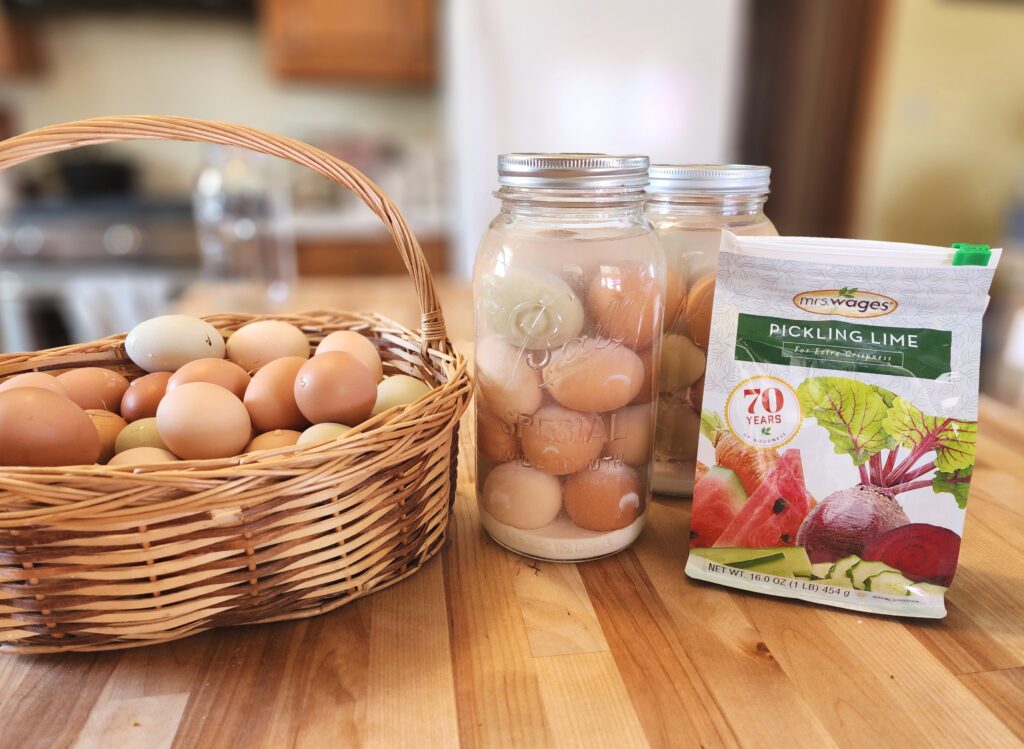
The key ingredient is pickling lime, also known as calcium hydroxide or hydrated lime. The lime will seal the egg shell to preserve the contents inside. Pickling lime can be found near other canning materials. Caution: Calcium Hydroxide can be harsh on your skin. You will want to use caution and wash your hands thoroughly after this process.
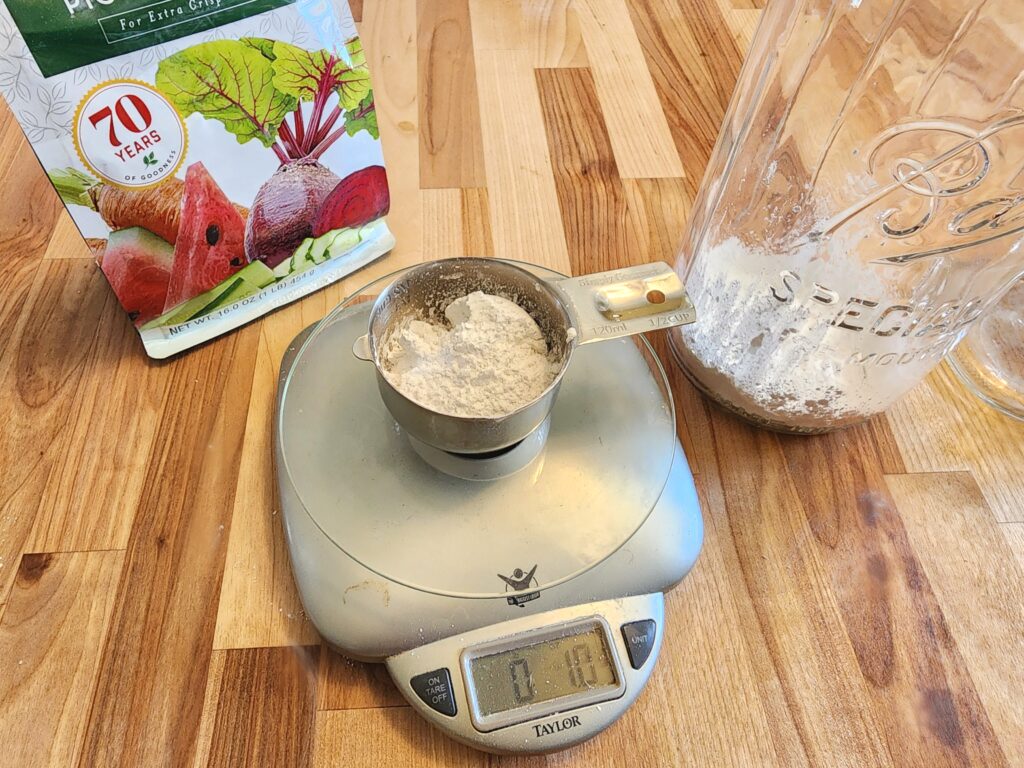
Materials
- 2 quarts water, free of fluoride or chlorine
- 2 ounces pickling lime
- wide mouth half gallon jar
Method
- Adjustable to container size, add one ounce lime to each quart of water. For a half gallon jar this means 2 quarts of water and 2 ounces of lime.
- Mix until dissolved
- Add eggs to the liquid pointy side down, which allows the air pocket in the egg to stay at the top
- Place a lid to keep the eggs from being exposed to air and keep the liquid from evaporating
- Store in a dark cool place for up to a year
- Wash eggs before using
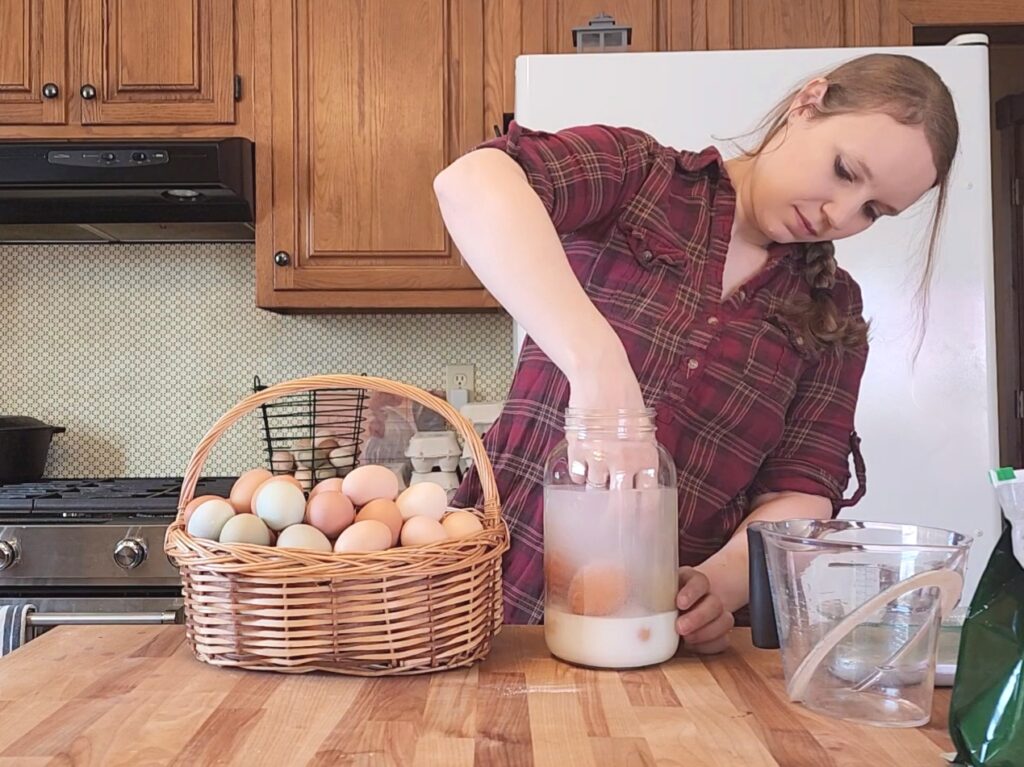
You can see the entire process on my Youtube Channel. While you are there, be sure to subscribe! Thank you for following along on facebook and instagram as well!
